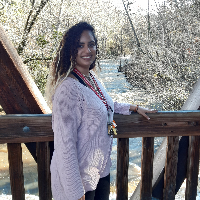What You May Not Know About Anxiety And Ways Of Managing It
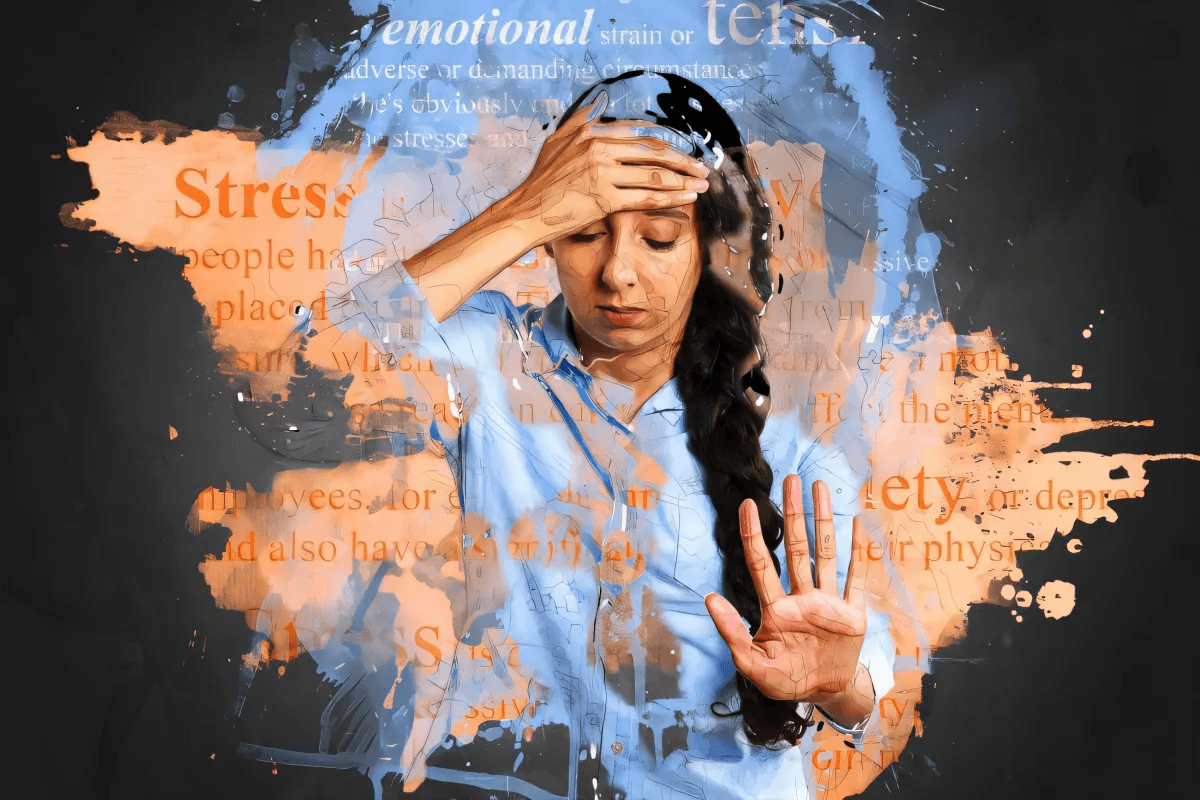
Depending on where you look, you will find that between 18% to 20% of people in the United States suffer from an anxiety disorder. What is anxiety though?
According to the Anxiety and Depression Association of America (ADAA), anxiety is used as a blanket term to fit in various disorders that involve extreme fear or worry, for example, generalized anxiety disorder, panic disorder and panic attacks, agoraphobia, social anxiety disorder, selective mutism, separation anxiety, and specific phobias.
There can be many different reasons that a person might develop an anxiety disorder, from trauma to the anxiety being tied to another mental disorder. But one thing that not many people seem to be aware of is that it can be learned.
Anxiety can be learned
If parents are already suffering from any type of anxiety disorder their children can learn from that behavior and mimic it.
In an articled titled 'How to Avoid Passing Anxiety on to Your Kids' published in the Child Mind Institute website, it is stated that "kids look to their parents for information on how to interpret ambiguous situations; if the parent seems consistently anxious and fearful, the child will determine that a variety of scenarios are unsafe."
The article continues by saying that "there is evidence that children of anxious parents are more likely to exhibit anxiety themselves."
When we are children we are like sponges for both the good and the bad. But, don't despair, if it's a learned behavior then you may be able to unlearn your anxiety and live a more peaceful life.
It takes time to manage anxiety
Even if there are methods to manage anxiety, it is not something that you can get rid of overnight. Anxiety is something that takes time to become aware of, to identify, and then to treat.
This is because anxiety can come in many forms. Sometimes you can see anxiety expressed as anger or short temper, while other times it can be expressed as nervousness or avoidance.
When it comes to anxiety treatment there are a vast array of things you can do and that you should try out for yourself. Note that, everyone is the same and different things work for different people.
The ADAA states that when it comes to treatment, it should be tailored specifically for each person because treatments may involve medication, a therapist, long or short-term programs and it may become complicated if the patient suffers from other mental illnesses as well.
The right treatment and program take time to discover so be patient and have compassion with yourself through this journey.
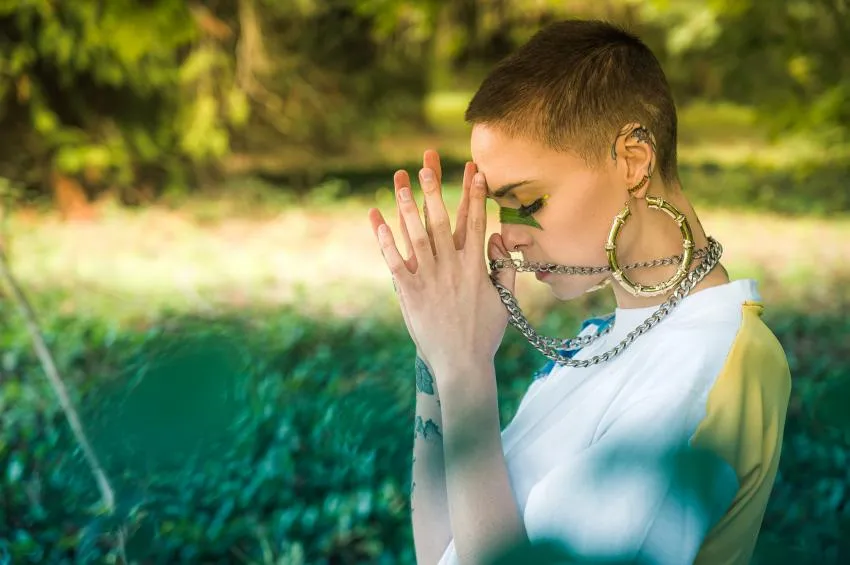
Religious beliefs and spiritual practices can help manage anxiety
Although more research needs to be done, especially between spirituality, religion, and anxiety, there have been studies that have seen lower levels of anxiety in people with higher levels of spirituality.
There have been other studies, however, that point at negative results in which spirituality and religion caused higher levels of anxiety or had no effect at all on the person. But, it seems that it all depends on the internal believes that the person has.
The Handbook of Spirituality, Religion, and Mental Health (Chapter 3) states:
"Positive beliefs such as greater faith and trust in God, secure religious attachment, intrinsic religious motivation, and religious gratitude, are robustly associated with lower levels of anxiety with medium to large effect sizes."
On the negative effects, the Handbook states that:
"Conversely, negative S/R (spiritual/religious) beliefs and attitudes such as punishing-God appraisals, anger and mistrust towards God, insecure/avoidant attachment to God, and extrinsic religious motivation, all predict greater anxiety symptoms with clinical as well as statistical significance."
In other words, your beliefs depending on whether they rely on internal (your own values and beliefs) or external (dependant on other people's views of you) motivation affect how your anxiety behaves and expresses itself.
Plant medicine can be an option to manage anxiety
Because of the rising interest of people in more natural products, a lot of research has been directed towards these kinds of products and medicine.
Studies like Plant-Based Medicine for Anxieties: Part 2, by J. Sarris, E. McIntyre, and D.A. Camfield, have uncovered that "research in...herbal psychopharmacy have revealed a variety of promising medicines that may provide benefit in the treatment of general anxiety and specific anxiety disorders."
Plants such as chamomile (Matricaria recutita), purple passionflower (Passiflora incarnata), sage (Salvia spp.), Ginko biloba, lemon balm (Melissa officinalis), Indian pennywort (Centella asiatica), and others have been shown to benefit those with anxiety disorders, this according to the study mentioned above.
If you are interested in trying plant medicine, we recommend going to someone who knows about this such as naturopaths or clinical herbalists, and always consult your doctor.
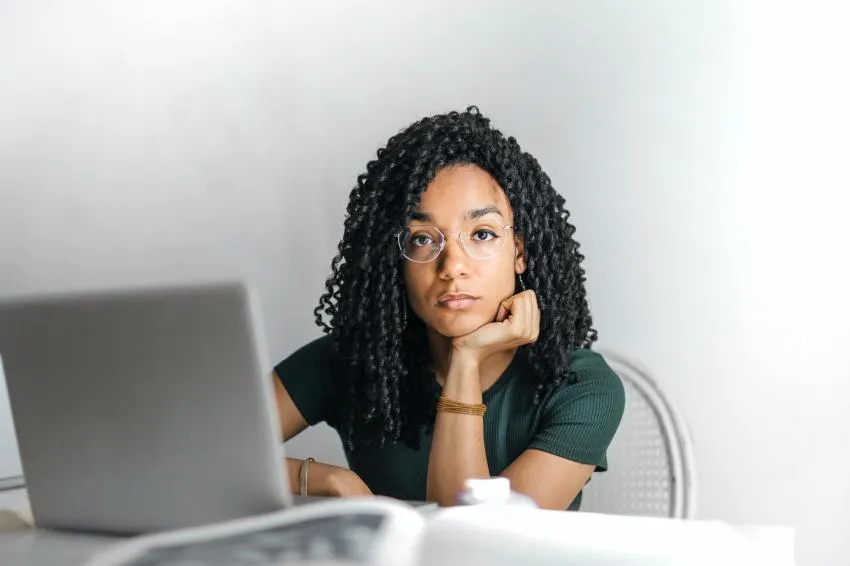
Social media and the news can increase anxiety
Believe it or not, watching the news or social media for long stretches of time is anxiety-inducing. According to the ADAA, in times of uncertainty, one of the ways the mind seeks to cope with the anxiety is by looking up information. This way we can feel like we are in control.
Unfortunately, the ADAA, says this is a fleeting feeling:
"Staying glued to the news (and social media) actually increases our anxiety in the long-term because it contributes to the false belief that if we have enough information, we can remain in control."
In fact, coming down from that elevated state of stress after watching the news is very hard.
A study on the negative effects of watching the news found that watching the news on television triggers persisting, negative psychological feelings that could only be buffered (lessened or treated) by the directed psychological intervention (relaxation exercises).
So, try to limit your news and social media consumption. It is alright if consumed in smaller doses but can become very bad for your anxiety if you are always watching the same negative or triggering things over and over again.
Working on self-esteem can help control anxiety
"Self-esteem is known to play a role in social anxiety disorder (SAD) and general anxiety disorder (GAD)", states an article in VeryWell Mind, which continues saying that negative "core beliefs help to maintain your anxiety and maybe rooted in low self-esteem."
Thinking negatively about yourself or your actions, criticizing yourself, continuously thinking this way, and catastrophizing, among other things, keeps you in a stressful and anxious cycle.
This is done by making you unconsciously seek out the negative things that validate your negative thoughts in the outside world, which in turn "tells" you that you were right and the cycle starts again.
It is for this reason that working on your self-esteem and self-worth can help you tremendously when it comes to managing anxiety. Stopping the cycle can help you lower your stress and anxiety levels because you are no longer spending so much energy inside your own head or looking for negative validations, and can spend your energy productively elsewhere.
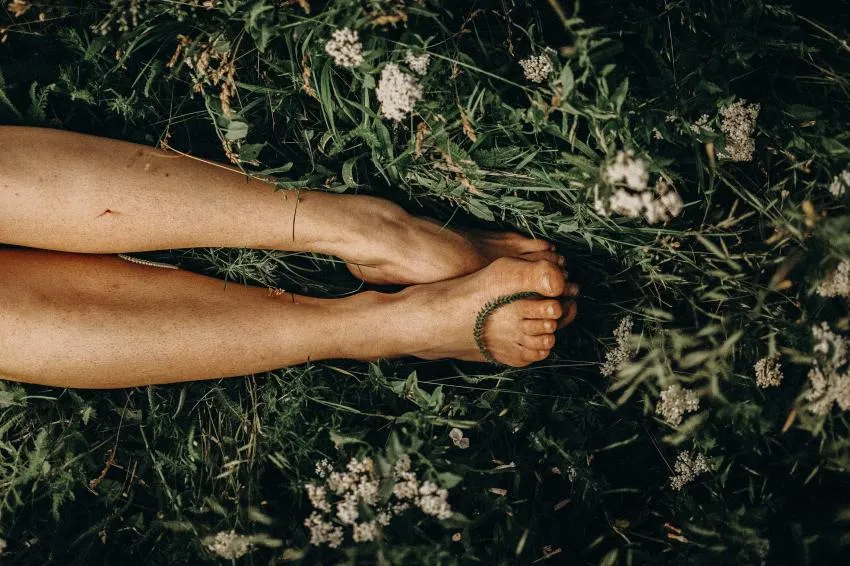
Earthing helps reduce stress and anxiety
Recent studies exploring the health implications between humans and the Earth have shown that the electrons on the soil can help balance our bodies physically, emotionally, and mentally due to their negative charges interacting with our own positive charges.
How can the Earth's electrons help manage anxiety?
According to Better Earthing, a company that specialized in earthing products; earthing can help reduce sympathetic nervous system override, balance the autonomic nervous system, and reduce the stress response.
In which case, walking barefoot on soil helps you calm down and become clear. It is recommended that this be done for at least 15 minutes to see some change in yourself.
Better Earthing also states that earthing helps reduce inflammation, normalize cortisol levels, and reset your biological rhythm, helping you to sleep, be more positive, and improving energy levels.
Animals can help calm anxiety
For those of you that are animal lovers, you will be happy to know that there have been studies linking animals to lower levels of anxiety.
In an article called Reduction of state-anxiety by petting animals in a controlled laboratory experiment, it was proven that just petting animals, whether with soft fur or hard shell, "reduced state-anxiety".
Another study that looked at the relationship between farm animals and people with clinical depression, showed that working with farm animals helped lower anxiety and depression "when progress in working skills was achieved."
You don't necessarily have to work with farm animals to help with your anxiety, though. In fact, you can get an emotional support animal by talking to your mental health professional.
The US Service Animals describes emotional support animals as animals that provide comfort just by being with a person.
Despite emotional support animals having shown to provide service to their owners, they do not qualify as service animals under the ADA because they are not trained to do a specific task or job. This means that emotional support animals do not have the same rights as other service animals to accompany their owners to the places they have to go.
That being said, there are still some places where emotional support animals are allowed. So we recommend doing research in your area by asking the businesses and stores you frequent if you can take your emotional support animal with you.
What can I do now with my anxiety?
If you think you suffer from anxiety the best way to know is to go to your doctor. Anxiety is hard to diagnose but once you know what's truly going on you can confidently seek out the best options for treating it.
Opinions and Perspectives
Wish there was more detail about specific anxiety disorders, but good overview overall.
The learned behavior aspect of anxiety is both concerning and hopeful. We can learn it but we can also unlearn it.
Really good insights about news consumption. I've had to limit my exposure for my mental health.
The variety of treatment options is encouraging. Nice to know there are so many paths to healing.
Never thought about the connection between earthing and anxiety. Might give it a try this summer.
Interesting point about positive versus negative religious beliefs. Makes me reflect on my own spiritual practice.
This article really helped me understand why my anxiety treatment hasn't been linear. It's normal for it to take time.
The social media impact is real. Had to start setting time limits on my apps.
Important reminder about consulting professionals before trying new treatments. Safety first!
Appreciate the balanced approach to spiritual practices. It really does depend on personal beliefs.
The part about farm animals is fascinating. Wonder if that's why I feel so peaceful at my grandparent's farm.
Good to know about the time factor in managing anxiety. Been feeling frustrated with my progress.
Anyone tried the lemon balm mentioned in the article? Curious about effectiveness.
The importance of patience in treatment really resonates. Took me years to find what works.
Never considered the religious aspect before. Interesting how it can help or harm depending on approach.
Learned behavior aspect is eye-opening. Makes me think about patterns in my extended family.
The section on self-esteem and anxiety makes so much sense. They really do feed into each other.
Great point about anxiety manifesting differently in different people. Helps explain a lot about my family members.
The connection between anxiety and social media really hits home. Need to work on limiting my usage.
The article could have mentioned more about workplace anxiety. That's a huge issue for many people.
Good reminder about being patient with anxiety management. It's definitely a journey not a quick fix.
Fascinating about earthing. Seems too simple but I'm willing to try anything at this point.
The news consumption advice is spot on. Had to delete news apps from my phone for my mental health.
Important point about checking with doctors before trying herbal remedies. They're natural but still powerful.
I've had success with a combination. Work with both my regular doctor and a herbalist.
Has anyone tried both traditional and plant medicine? Curious about combining approaches.
Really appreciate the emphasis on taking time with treatment. Too often we expect quick fixes.
The idea that anxiety can be learned makes so much sense. I see similar patterns in my family.
The section about spiritual practices is interesting but I think it depends a lot on personal beliefs.
Finding out anxiety can be unlearned gives me hope. I always thought I was stuck with it.
Agreed! My emotional support cat has helped immensely but I can't take her anywhere.
The part about emotional support animals was helpful, but I wish they had more legal rights in public spaces.
Love the holistic approach this article takes. Mental health isn't just about medication.
Never knew about the link between self-esteem and anxiety. Going to work on this with my therapist.
Interesting how anxiety can manifest as anger. That explains why my partner gets irritable when stressed.
The information about children learning anxiety from parents is eye-opening. Makes me more mindful of my behavior around my kids.
Definitely! I've had to set strict limits on my screen time and social media use.
Anyone else noticed their anxiety has gotten worse with increased screen time during the pandemic?
The bit about being patient with treatment really resonated with me. Took me several tries to find the right approach.
True about diet! Cutting back on caffeine made a huge difference for my anxiety levels.
Surprised the article didn't mention the role of diet in anxiety management. What we eat can really impact our mental state.
The statistics about anxiety in the US are alarming. Wonder how they compare to other countries.
Yes! I volunteer at a local stable and it's incredibly therapeutic. Something about those gentle giants is so calming.
Wonder if anyone else has experience with farm animals helping their anxiety? I've always felt calmer around horses.
The part about anxiety being expressed differently in people is so true. Took me years to realize my irritability was anxiety.
Really appreciate how this article explains that different things work for different people. There's no one-size-fits-all solution.
I've found that combining several of these approaches works best. Therapy + exercise + herbal tea has been my winning combo.
The connection between anxiety and negative religious beliefs is fascinating. Never considered that angle before.
Learning that anxiety takes time to manage was actually relieving. I've been so hard on myself for not getting better quickly.
Wish the article had covered more about panic attacks specifically. They're a whole different beast.
You'd be surprised! Simple things often work best. Nature connection in general helps reduce my anxiety.
Finding it hard to believe that walking barefoot can help with anxiety. Sounds a bit too simple.
The section about news consumption is spot on. I had to limit myself to checking news only once a day.
Important to note that while plant medicines can help, always check with your doctor first. Some can interact with medications.
Anyone tried those plant medicines mentioned? Particularly interested in purple passionflower.
The information about learned anxiety behaviors makes me worried about how I might be affecting my kids.
Completely agree about exercise! Regular running has helped me more than any medication ever did.
I think the article should have mentioned exercise as a management tool. It's been crucial for my anxiety control.
My emotional support dog has been life-changing. It's amazing how much calmer I feel just having him around.
The part about anxiety being expressed as anger really opened my eyes. I always thought I had anger issues, but maybe it's anxiety.
Never thought about the connection between self-esteem and anxiety before. This explains a lot about my own struggles.
Working on self-esteem has been key for me. Once I started being kinder to myself, my anxiety became more manageable.
My therapist recommended plant-based remedies like chamomile tea. It's subtle but definitely helps take the edge off.
The statistics are pretty shocking. Almost 20% of Americans with anxiety disorders? That's huge.
Yes! I've been practicing earthing for 6 months and noticed a real difference in my stress levels. Just 15 minutes barefoot in my garden each morning.
I'm skeptical about the earthing concept. Has anyone actually tried this and seen results?
Interesting point about religious beliefs. In my experience, meditation has helped tremendously with managing anxiety symptoms.
The part about social media increasing anxiety really hits home. I've noticed my anxiety spikes after doom scrolling through news feeds.
Thanks for sharing this informative article. I've struggled with anxiety for years and it's helpful to know there are so many different management approaches.
I never realized anxiety could be learned from parents. Makes me think about my own family dynamics differently now.
